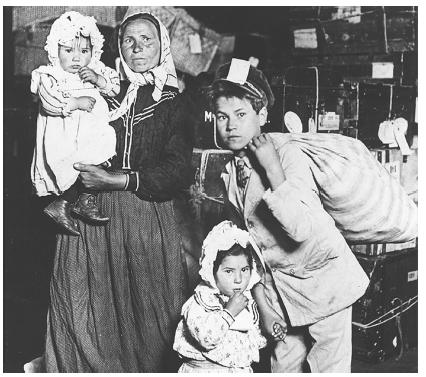(I’m not sure if this article is behind a paywall or not, but if so, you can access it by googling any of the quoted text.)
. . . according to an article in the L.A. Times (reprinted in the Chicago Tribune), which features young men and women who were raised, for a time, in the United States, but have since either been deported back to Mexico or returned voluntarily, individuals such as
Daniel Arenas, 25, who returned to Monterrey for college because his immigration status in the U.S. limited his ability to obtain a driver’s license, legally work and attend North Carolina’s public universities [and] Maru Ponce, 30, who was raised in the Bronx but returned to her native Puebla because she thought she would never be able to get a good job in the U.S. without legal documentation,
as well as Nancy Landa, who was brought to the U.S. as a nine year old, then deported in 2009, at the age of 29. (She had filed for asylum, but had her claim rejected, and didn’t voluntarily leave, so she was picked up and summarily deported — the chronology isn’t clear but it sounds like she made things harder by not making any kind of preparations for a return to Mexico.)
She and others have come together in a group they call “The Other Dreamers” in reference to the fact that, had they stayed, they could have been eligible for the never-passed, now executive-ordered “Dream” Act legalization program. (Or most of them, anyway — some had criminal records.) And ironically, the administration’s insistence that “we will only deport criminals” means that they are viewed by Mexicans as criminals, because of the belief that only criminals are ever deported. But, despite struggles to make their way with imperfect Spanish and problems with Mexican bureaucracy, they find work in such places as call centers, where their English fluency is a plus.
And they have become politically active:
In meetings with Mexican officials, they have petitioned the government to speed up the process for returnees seeking local IDs and have called on universities to change higher education standards so that U.S. transcripts are recognized.
and
Along with changes to Mexican laws, Los Otros Dreamers are also seeking changes in the U.S. that would improve conditions in immigration detention centers and allow those who have been deported to more easily return to America for visits. Like many people who were deported, Landa was banned from visiting the U.S. for 10 years.
Are they also pushing for readmission to the U.S. as immigrants, under any sort of “immigration reform” or executive action? The article doesn’t say so.
But it does seem as, ironically, these young people, with their U.S. educations and bilingual fluency, are actually best positioned to return to Mexico and make a new life for themselves as a part of the middle class, where, had they never left, they would remain part of the impoverished masses — and I say “ironically” because here in the U.S., they’re labelled as the ones for whom it would be the greatest hardship to remove, or to fail to legalize, and, in reality, an uneducated older Mexican would likely find them in worse circumstances upon their return, relative to their situation when they left, if they no have no connections, no education, a decreased ability to do manual labor, and no credit in the Mexican Social Security system.












